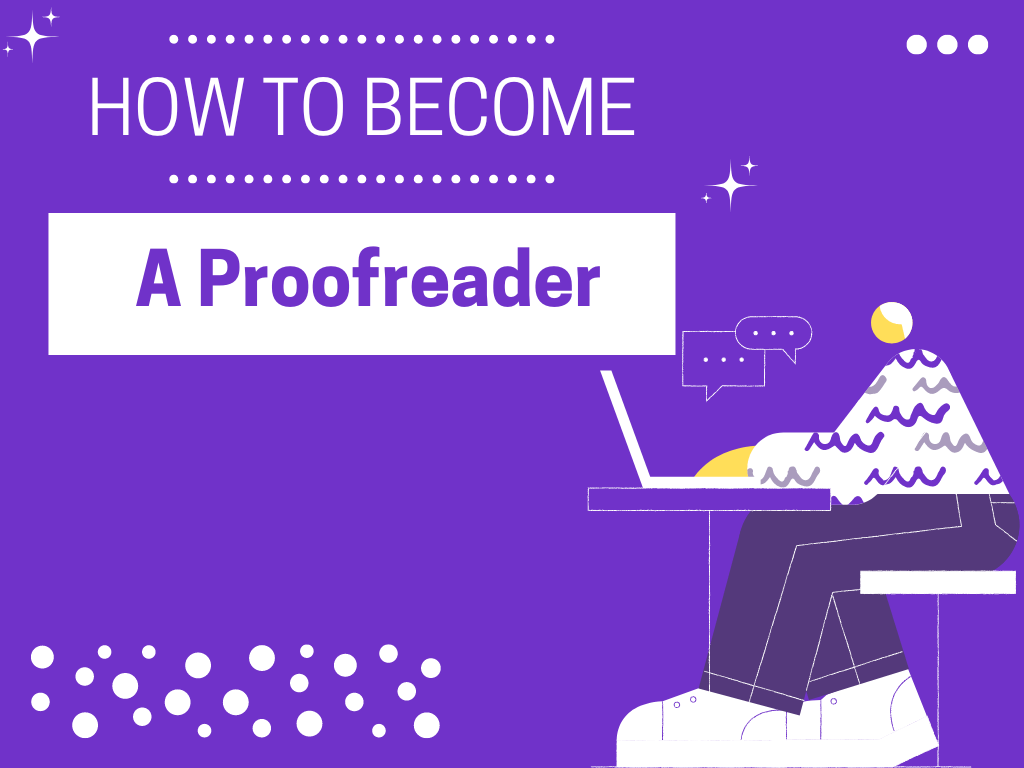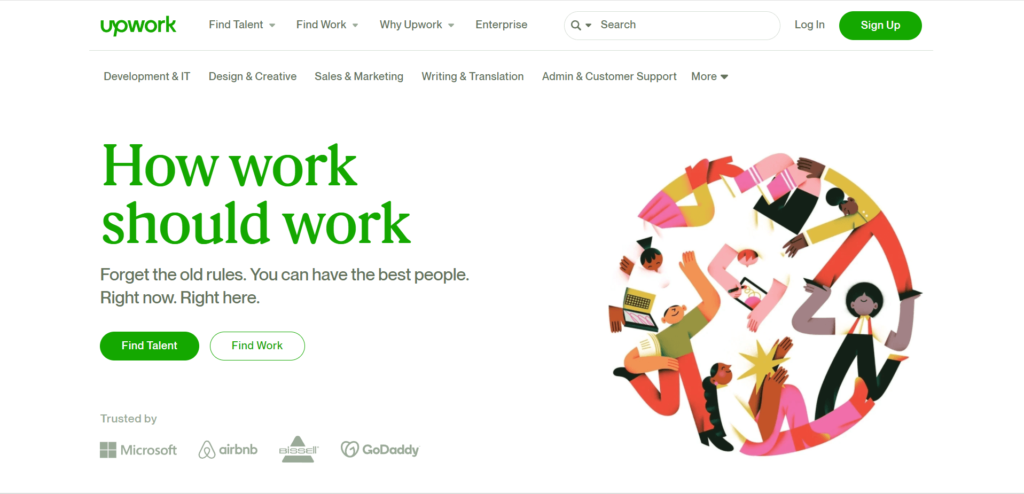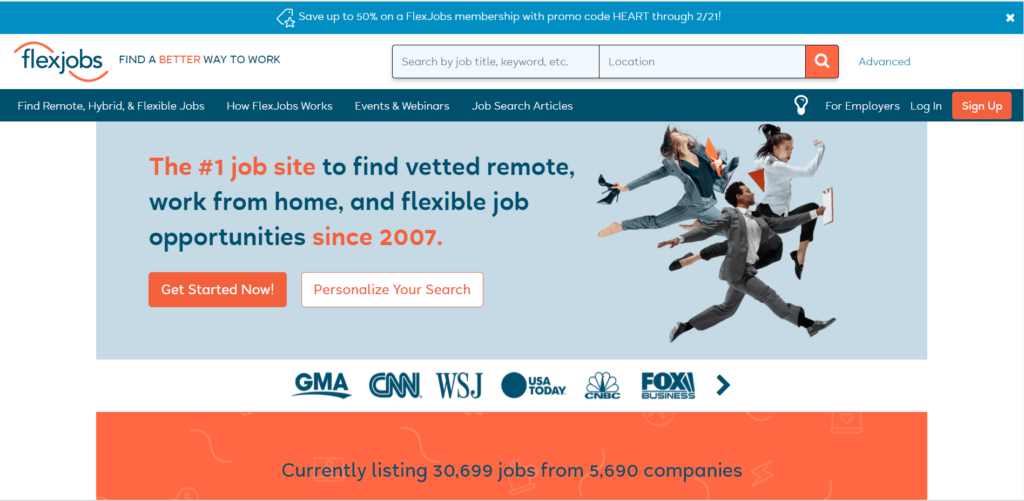
If you’re looking for remote freelancing jobs and believe that you can quickly spot typos and grammatical errors in write-ups, being a proofreader can be the perfect job for you!
Freelancing as a proofreader can be an excellent option for you because:
- No need for a specific degree or proofreader certification.
- One can start this journey with zero experience.
- Once assigned a task, you can increase your hourly payouts.
So, if you want to learn this skill, then you don’t need to waste your precious time attending those tedious and long proofreading courses!
Stay connected to become a proofreading pro in just 15 minutes!
This blog will help you in your journey to becoming a proofreader by including some of the exclusive and unique tips which will smoothen your journey.
It’ll also include some fantastic proofreading tips and some of the best websites to find freelance proofreading jobs.
A good editor doesn’t rewrite words; she rewires synapses
S. Kelley Harrell
Basics of Proofreading
One of the factors that help in making a write-up compelling is proofreading, irrespective of the topic or genre. A piece of writing filled with mistakes wouldn’t leave a good impression on the reader.
What Proofreaders Actually Do?
A proofreader is someone who reads a write-up and looks out for various types of errors such as spelling, grammatical, or typing errors.
Some people are unable to identify the difference between proofreading and copyediting.
A copy editor makes edits that improve the accuracy and reliability of the write-up so that the information is accurate and the writing style pleases the readers.
On the other hand, a proofreader’s primary job is to ensure that there aren’t any sort of grammatical errors, spelling mistakes, extra spaces, or incorrect punctuations in the write-up.
Some clients don’t hire both proofreader and copy editor, so they might want you to make the copyediting changes as well. It is beneficial to understand a client’s expectations before you know how to become a proofreader.
Why Do Companies Hire Proofreaders?
Sometimes it is difficult for a writer to take out mistakes in the old pieces of content, so they require proofreaders to help them make the work easier.
Some writers have incredibly creative intellect but lack grammar or the more functional part of writing. It’s possible that sometimes the writer simply may not have the time to proofread their own work and need help to handle the task.
What Are The Different Types Of Proofreading Jobs?

There are a variety of proofreading jobs available in the marketplace. We have mentioned a few of them below.
1. Books and E-books
With the origin of the self-publishing approach, it has been made easier to write and publish a book. It cuts the cost of having a publishing house, so people invest in having a proofreader instead.
2. Blog Posts
There are countless blog posts on the internet, and even though blogs are usually a one-person job, bloggers typically have a variety of tasks to perform. Hiring a proofreader helps them reduce the tasks and thus the work pressure.
3. Marketing Content
Even the tiniest of small firms produce marketing content, but they don’t have enough work to hire a full-time proofreader. As a result, part-time proofreading freelancers should focus on small firms.
4. Technical Content
Technical content is when picking a niche comes into play. General proofreading is not appropriate for technical content, but it is suitable for someone who wants to become a proofreader specializing in a particular field.
5. Academic Papers
For people who want to become a proofreader and think that there aren’t enough opportunities, you should know that proofreaders can find plenty of work among college students. Graduate students frequently employ freelancers to ensure that their essays and academic papers are free of errors.
What Skills Are Required To Become A Proofreader?
A skilled proofreader has a close watch for glitches that most people would overlook, as well as a thorough command of the language (including spelling, grammar, and punctuation).
Many proofreading softwares are available in the market. Many people who want to become a proofreader use them at their initial stages, but it’s best to know that none of them can catch everything due to the complexity of the language and the different laws and norms that surround it.
One of the plus points that you realize once you become a proofreader is that proofreading can never be entirely replaced by technology and AI softwares.
How Much Money Does A Proofreader Make?

After knowing the perks of proofreading, you might be wondering to know a proofreader’s salary!
How much do beginner proofreaders make?
Well! You’re not going to earn a lot of money when you just start working as a beginner proofreader. It’s a good idea to provide low-cost offers on freelancing platforms to gain experience and excellent feedback.
On average, according to Glassdoor, the yearly wage for someone who wants to become a proofreader in the United States is $43,478 (₹4,30,752 in India), which estimates to be around $3623 per month (₹35,896 in India).
How To Become A Proofreader? – 7 Simple Steps
If you’ve never worked as a proofreader before, or if you’re learning how to become a proofreader with no experience and working from home, you might be unsure where to start.
The fact about being a proofreader is that it’s not as difficult as it may appear. If you’re purely dedicated, you might be able to read this blog today and have your first contract signed by tomorrow.
Here’s a step-by-step guide to help you become a proofreader.
1. Identify Your Positive Traits
Many people often ask us – ‘How do I become a proofreader with no experience?’
While you don’t need years of experience to become a proofreader, you just need to convince potential clients that you are the best match for this task, no matter if you have a lack of references and feedback.
As a result, it’s essential to start this process by considering what abilities you have that can assist you in building confidence. You might have some certain degree or experience which will be sufficient for obtaining entry-level projects.
2. Create An Impressive Portfolio
Clients want to work with actual people who have an active web presence and have original profiles. That means they’ll Google you and, at least slightly, base their hiring judgments on what they find.
So, at the most basic level, let go of the notion that you can grab any new projects being anonymous. It will be far more difficult to find clients and earn less money if you do not use your name and photo.
It’s also essential to make sure that all of your social media accounts convey the impression that you’re a professional proofreader and not someone who’s trying to become a proofreader who cannot be relied on to give desired results.
Recommended Read: How To Write A Resume With No Experience [Ultimate Guide]
3. Arrange All The Tools Required For The Job
Like any other job, proofreading has its own set of tools that you’ll need to learn about and have access to. In the process to learn and as you become a proofreader, you’ll realize that “ Style guides” are one of the main tools, as they provide specific norms for language and punctuations within specific disciplines and businesses.
For example, the different writing styles- most newspapers adhere to the AP or Associated Press writing style. At the same time, most book publishers use the Chicago style of writing.
This is important because as a proofreader, your critical task is to carefully observe even the minute details, maybe like the space abound with the dashes.
Some of the standard style guides are
- American Psychological Association (APA): Used in the social sciences (and some complex sciences).
- Associated Press (AP): Used in journalism.
- Chicago Manual of Style: Used in the U.S. publishing industry.
- Council of Science Editors: Used in biology and natural sciences.
- Modern Language Association (MLA): Used in the humanities.
Through your process, where you learn how to become a proofreader, you’ll easily be able to identify the different style guides used at different places and be able to use them effectively.
4. Brush Up On Marketing Basics
You don’t have to memorize each style guide. Rather just be familiar with trendy principles and keep up with the recent trends, which will become easier as you will eventually become a proofreader.
Serial commas, the number of spaces after periods, and the hyphenation of compound words are some of the most typical problems you’ll correct as you become a proofreader. The guidelines for these modifications differ widely depending on the client’s chosen style guide, and they can alter over time.
Remember, it’s not just about your present client’s satisfaction; prospective clients may want samples of your work. Although the blogger who gave you your first proofreading assignment may not care whether every detail follows a certain style guide, higher-paying clients will — and your samples must demonstrate that you know what you’re doing.
5. Identify Areas Where You Might Have A Slight Advantage
Earlier, we talked about identifying the positive traits you have as a proofreader. These traits will make the client believe that they can trust you to correct the grammatical and punctuation errors in their write-ups.
You might think that previous jobs you might’ve had would give you no advantage in your journey to become a proofreader, but that’s not true.
For example – If you had a job as a nurse, it would automatically make you more attractive to people who want to get medical-based content checked.
Everything that’s published has a niche, and there are chances that you have expertise in one or many of them. So, the key is to research areas where you could have an added advantage and align your job accordingly.
This step will enhance your chances to become a proofreader and increase your opportunities by a good margin.
There’s a demand for proofreading in almost every niche, so don’t worry if you think your preferred niche doesn’t have enough marketability.
6. Analyze Your Target Audience
Your first project after becoming a proofreader is crucial for getting future work, and if the feedback you get isn’t good, your proofreading career will be over before it starts.
That’s why it’s slightly important to be choosy with the clients (i.e., your target audience) you work with. Clients do not always provide clear instructions or set clear expectations and sometimes do not even evaluate the work fairly.
No one should have to tell you this, but once you become a proofreader, there come clients who are harder to deal with, and not everyone is reasonable. You need to be careful of that.
If you have worked with 50+ clients, a few bad reviews will not make any difference. However, people will only see your first two or three reviews – so you need them to be good.
You will find plenty of job opportunities out there, so try not to let your eagerness to become a proofreader lead you into a situation that could hinder your career pathway.
7. The First Project Has To Be Perfect
As you become a proofreader, you’ll realize that proofreading is a highly competitive field. It means the demand for proofreaders is highly based on the success of your first project, as discussed earlier.
The client you work for may give you glowing feedback and refer you to others, or they may be brutally honest about the shortcomings of your work.
So far, we’ve talked about how important perfection is in the first project. Therefore, you need to ensure that you never submit your work without reviewing it ten times. You don’t want a client to catch any sort of mistake.
Recommended Read: How To Start Freelancing and Get Freelance Jobs?
5 Actionable Tips On How To Become A Successful Proofreader

You can improve your proofreading skills even after you have become a proofreader since learning and growing is a never-ending process. As you become a proofreader you realize that you can land more work by learning a few expert tricks. Some of them are mentioned here.
1. Conduct The Final Read With Pen And Paper
Most of the proofreading will be done digitally. However, after you feel that you’ve completed reviewing, you should print it out and read it once again – on a paper this time.
Once you become a proofreader, you’ll realize that this process automatically becomes so much easier when you print it out.
The final reading must be done the old-fashioned way. Print each word in your project on paper and examine it with a red pen. Our brains process content a little differently on a page, so this method will help you catch errors that you couldn’t see on the screen.
2. Perform the First and Last Read On Different Days
Even if a project is relatively small and manageable and you can complete it around in a single day, try to extend it to at least two days.
If you any content multiple times in a row, your brain starts anticipating the next words and lines. This will make it easy for mistakes to hide your eyes.
In order to avoid this, it’s suggested to make the first and last read on different days.
3. Read Aloud
As discussed earlier, you should get the final document printed and check again. Just this time, instead of reading it silently, read it aloud.
It utilizes a different part of your brain to process things when we read stuff aloud, and this will help us to catch errors we couldn’t catch earlier.
4. Execute The Bottom-Up Approach
Firstly, attempt to read the content the way it has been written. Now, start reading from the bottom and gradually make your way upwards of the content.
Reading the article sequentially can trick your mind into being more absorbed in the content of the article, which doesn’t help when your work is to catch mistakes.
Even though your job as you become a proofreader is to make sure that the content written makes perfect sense.
5. Take Count Of The Number Of Words You Proofread Per Day
It’s not always physically demanding to become a proofreader; however, it’s mentally demanding. If you attempt to do an excessive amount of proofreading in a single sitting or in a single day, your accuracy will decline as your mind will become fatigued and will lower your chances of being hired.
5 Must-Have Tools For Proofreading
The following tools, most of which are free or somewhat inexpensive, should be included in every excellent proofreader’s tool bag.
Take a few minutes to look out their features in-depth since several have hidden capabilities that the average user isn’t aware of, especially in the process where you’re trying to learn how to become a proofreader.
1. Google Docs
Many clients prefer to work with Google Docs since it’s free, easy to use, and contains a set of useful capabilities when two or more people are working on a project together, such as the ability to highlight and remark on a specific section of text.
2. Microsoft Office
Microsoft Office has many features, but they’re slightly complicated to use. Apart from that, it has its own set of plus points. It has a better set of proofing features such as “Track Changes,” an option that allows you to review the changes you made to the document.
Before starting to work with Microsoft Office, it’s advised to read and understand the role of all the features under the review tab since many of them aren’t self-explanatory.
3. Grammarly Premium
Grammarly Premium is a monthly and yearly subscription-based tool that consequently looks for the different types of grammatical mistakes that a proofreader looks for. This application is a must-have tool for this kind of job, and it’s worth the money.
Discover Awesome Proofreading Jobs That Pay Well
Are you also wondering about – ‘How do I become a proofreader online?’
Whether you’re trying to get part-time or full-time jobs, the range of proofreading jobs is wide. And most of them are remote jobs with flexible schedules.
Recommended Read: Top 6 Freelancing Website To Make Millions At Home
Here are the top 4 websites that can help you grab new proofreading jobs from home:
1. Upwork

If you are wondering, how to become a freelance proofreader then Upwork is one of the best freelancing websites which you can explore. It has positions for numerous jobs including proofreading jobs.
You will face plenty of competition if you don’t have much experience, so it’s advisable to should choose a niche and bid low.
It is an amazing website since you can see the feedback on the clients as well as feedback someone has left for you so you can get a sense of the quality of someone’s work.
2. Fiverr

Another popular freelancing out there is Fiverr, where the clients come to you. People who want to become a proofreader will create a profile and post an offer which is called a “gig” along the lines “I will proofread 1000 words for $50,” then clients to simply purchase the gig.
Even though it might be easier to get clients on Fiverr, it has its disadvantages as on Upwork –
- The price for your project might be less than that on Upwork
- You can’t choose to work with your clients, which would lead you to a situation where you would have to deal with many complicated clients.
3. Flexjobs

Proofreading as a part-time job rather than a full-time job. Flexjobs might be the perfect place for you. All the job postings on Flexjobs are verified, so being scammed is not an option.
Another great feature is that established corporations usually put up long-term projects as posts that can be done remotely, which can add a lot to your experience as a proofreader.
4. Content Agencies
Content agencies can be an excellent source for getting different types of freelancing jobs such as proofreading, editing, writing, etc.
These agencies work on a contractual, project-by-project basis, which is why they need proofreading freelancers. Some of the agencies that hire proofreaders are – Proofreading Pal, Proofreading Services, and Scribendi.
Frequently Asked Questions
Mentioned below are a few of the most popular questions newcomers have when they consider proofreading as a job.
1. Do you need certification to be a proofreader?
Wondering what qualifications do you need to be a proofreader?
Well! Proofreading jobs generally do not require any sort of certification. Apart from that, some universities do offer proofreader certification, but they are expensive and only necessary if you are interested in working for a newspaper or a publishing house.
2. Is there unlimited learning potential through proofreading?
Proofreading jobs do not have unlimited earning potential simply because after a point; there is a limit to how much value you can add to a certain write-up. Sometimes, the text may be near to perfect, and you might not have to make any significant changes.
However, if you need more freelancing jobs, you can become a proofreader, writer, and editor, which can help you to increase your earning potential by quite a margin.
3. Are there any negatives of being a proofreader?
Is proofreading a good side hustle?
Yes!
Are there any cons of proofreading?
Still yes!
The downsides of being a proofreader could be that even if you like to read a lot, sometimes proofreading work can be tedious. It can also be mentally exhausting to go over such huge masses of texts with an enormous amount of attention.
Professional proofreaders have to go over 20,000 words in a day and pay attention to every comma, space, and punctuation.
Become a Proofreading Pro Today!
Proofreading is undoubtedly one of the most popular freelancing jobs out there. You can do it part-time or full-time, and since it has a flexible schedule, one can make money from home.
There are a lot of options from which you can choose, such as building your own business as a proofreader. Moreover, the bar to become a proofreader is low as it doesn’t require any formal certifications or years of experience to get in clients.
If you are good enough, companies might even offer long-term contracts with you. If all these conditions are what you want in a job, proofreading might be the perfect option for you.
For more such informative blogs, stay connected with Penchise!




Very helpful!! Keep up the good work!
Hi Ankit, we’re glad that you liked our blog. Stay connected for such more valuable content!
+ for the post
very good